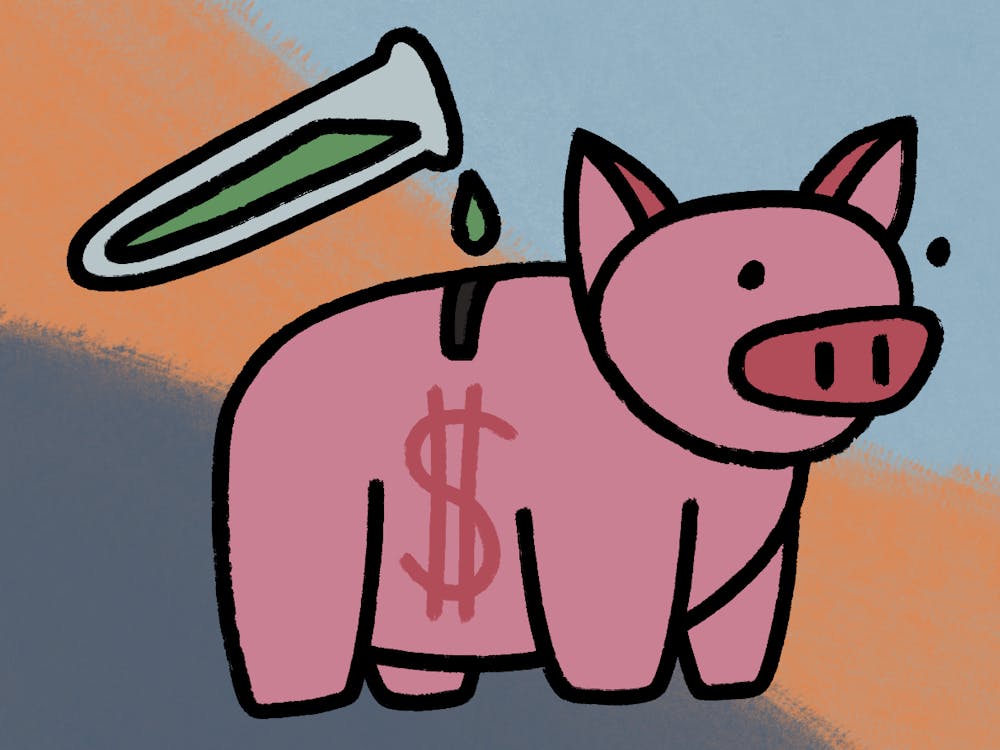While universities across the country scramble to adapt to research funding cuts, the University of Florida reported $1.33 billion in research spending for the 2024-25 fiscal year.
According to a UF July 22 press release, the milestone marks the university’s highest research expenditure to date, cementing its place among top-tier research institutions. Based on the National Science Foundation’s annual Higher Education Research and Development survey, UF ranks 25th overall and 15th among public universities for research expenditures.
Dr. Chris Curran, a UF associate professor of educational leadership and policy and director of the Education Policy Research Center, said the university’s upward funding is part of a broader pattern. “This reflects a trend that UF has had for several years now,” he said.
“UF has put a big emphasis on external funding,” Curran said, “It’s a priority for the university and something we want faculty to pursue.”
UF’s growth stems from its ability to secure external funding across federal, state and private sectors, but faculty competitiveness is the primary catalyst behind the peak, he said.
“The upper trajectory of it reflects the work that faculty do and that is supported by staff and the research personnel throughout the university,” Curran said.
In 2025, UF researchers earned more than $1.2 billion in new awards.
UF invested heavily in internal research support systems instead of relying on outdated and decentralized grant processes, where proposals may be handled with minimal institutional support. Across disciplines, faculty are backed by teams that navigate the grant process from start to finish. Curran calls it a “strong infrastructure,” with a staff that handles pre-award logistics and management for those who guide grant applications.
“That infrastructure may be common in some top-tier institutions but is not necessarily present in all universities or colleges across the nation,” he said.
While this year’s numbers are cause for celebration, administrators aren’t blind to future risks.
“Future years may not follow this upward trend,” Curran said. “It’s probably the case for UF and other institutions, unless we see a return of external funding.”
Many researchers are turning to private foundations and donors as alternative sources, he said, a pivot UF is already encouraging.
David Norton, the UF vice president of research, said he remains optimistic.
As federal priorities change under new administrations, research institutions have been hit with funding freezes and budget cuts.
“Sometimes that transition is slow and gentle,” Norton said. “Sometimes it’s abrupt. This administration has been more abrupt than the previous, but I think we were prepared for that transition.”
In the past six years, the university poured millions into artificial intelligence, Norton said. It’s recently begun investing in quantum research, all while continuing to fund longstanding strengths in agriculture, engineering, aerospace and medicine.
“We’re aligned with the things that matter, that will keep us competitive,” he said.
According to Norton, the long-term goal is to have nationally and globally relevant research, something achieved through the commitment to only hire the brightest and most qualified faculty. The most important element in research success is the faculty and their supportive staff, he said.
“We look to see what areas are emerging,” Norton said. “We want to develop knowledge for next generations. We want to be the first to do that.”
Catie Smith, a 20-year-old UF public health junior, has juggled numerous research projects, including studying influenza and creating a digital art archive by people diagnosed with HIV/AIDS. For students like Smith, UF’s growth in research funding has created unexpected and unique opportunities.
“I’ve gotten the chance to do a little bit of everything,” Smith said. “[I’ve] been lucky to get funding through programs like the Grass Scholars and the Discovery Fellowship.”
The Alexander Grass Scholars program supports undergraduates across all majors pursuing research in the humanities, public engagement and local research, while the Discovery Fellowship provides support to students conducting research in Special and Area Studies library Collections.
“There’s a lot of support for undergrads to get involved,” she said.
Even as a student researcher, Smith has seen the ripple effects of national budget cuts when one of her labs lost CDC funding. Is there any way to go more into this?
She remains confident in the future of research at UF.
“They’re being really intentional about where they can apply and how they use their money, especially with how uncertain things can be,” she said.
Whether the university will maintain its current trajectory is unclear, but after crossing the $1.3 billion threshold, UF has made a name for itself as a top-tier research institution.
“We’re doing research that matters, that changes the lives of people and future generations,” Norton said.
Contact Swasthi Maharaj at smaharaj@alligator.org. Follow her on X @s_maharaj1611.

Swasthi is the Fall 2025 university administration reporter. She's previously worked as general assignment reporter with The Alligator, and you can also find her work in Rowdy Magazine or The Florida Finibus. When she's not staring at her laptop screen or a textbook, she's probably taking a long walk or at a yoga class.






